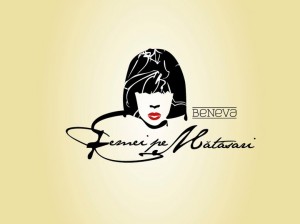Because I love hardcore(hardcore-punk that is) I recently started reading “Burning Fight: The Nineties Hardcore Revolution in Ethics, Politics, Spirit and Sound.” The book is made up of interview with members of various nineties hardcore bands which made an impact at the time and also on what hardcore developed into afterwards. It’s definitely a worthy read for anyone who loves hardcore and hardcore history.
The reason I bring it up here is because for anyone who knows, and for everyone who didn’t know till now, hardcore-punk has been dominated mainly by white middle-class(ish) boys .
This has inspired many discussions, debates, fights, lyrics, crews, etc.
So below I share a few quotes from a section on Gender and Sexuality in the book.
I’ve chosen only some of them, which were of interest to me, but also diverse. They’re just a few and I type them in their entirety because they make up part of someone’s story and I don’t want to edit that any further than the context already has.
Daisy Rooks (Chicks Up Front crew): I noticed that as it got toward the mid-nineties it was sort of in vogue in the straight edge scene to at least pretend you were down with feminism or choice issues regarding abortion. People gave lip service to it, which was good because men were talking about these issues, but in terms of overall core behavior I didn’t see a lot of change during my time in the scene.
Jen Angel (Fucktooth Fanzine, Clamor Magazine): For a large part the level of sexism depended on where you lived. I felt that there were real regional differences in how communities were comprised. Where I lived in Ohio, there were women in the scene, but only a few were really active in bands or writing zines. A lot of them just went to shows and hung out, and that was cool, too. I was fortunate to have a few really good female friends, and I was really influenced by female-made zines like Slug and Lettuce, Cooties, and a ton more. I did feel like it was a boys’ club, but I also felt that I could assert myself if i wanted to, though that was difficult. I remember there was a lot of discussion around competition among women in the scene and I definitely felt that, which may have been real or perceived. I felt that it made it difficult for me to really make strong friendships with women, with a few exceptions, and I had to work to overcome that so I could build new relationships with amazing women and not feel threatened by them.
Sean Capone: I think the homophobia in hardcore was a simple, uncreative, “don’t drop the soap” style homophobia. A queer in the pit was a threat to the normative sublimation of hetero-male aggression that can only come from physical contact with another man. People took my arrival with a certain grain of salt. It’s not like “queer-edge” was some movement dying to be born. Why the lack of discussion? Well, straight guys will begrudgingly accept feminism in their scene; after all, it’s their sex lives on the line at the end of the day. But there’s no real personal stake in having to accept gays, I guess, which may be a bit reductive, but I was astonished at the appalling credulity of people in the face of blatantly untrue rumors and calumny. I’ll be honest, I wasn’t out to start a sexual revolution within hardcore [Positron Fanzine], I just wanted to have fun and annoy some people, which I did, and find some boys to date, which I was less successful at.
Chris Boarts-Larson: Homophobia was even worse than racism as an underlying issue that was ingrained into people – whether from family or society – that was in turn mimicked in the scene. I think it was very hard for people to be “out” in the late-eighties and that in the early-nineties it di become a hot topic and it was a very positive thing. For me it went hand in hand with gender, sexism, racism – all of them were bad and it was important ot educate people about [them]. Homosexuality and homophobia were one of hte biggest otpics of hte time period of the early-nineties at ABC No Rio. Mike Bullshit, who was one of hte people organizing the initial hardcore matinee at ABC No Rio, was gay, adn he felt very ostracized in the NYC hardcore scene. I think that he was in the closet for a very long time, and finally around this time came out and it was therefore one of the essential foundation issues of the time and place. If you couldn’t deal with it, esentially you weren’t welcome at ABC. I have tons of respect for Mike for what he did at this time, I really can’t begin to say I know anythign what about he went through, but i know it was hard and putting yourself out there like that is hard and he caught a lot of shit, even amongst those who should have been and were expected to be more understanding. But it definitely opened up a door for a lot of other people to talk about their own experiences and feelings and I know that a lot of other people also came out aruond that time.


